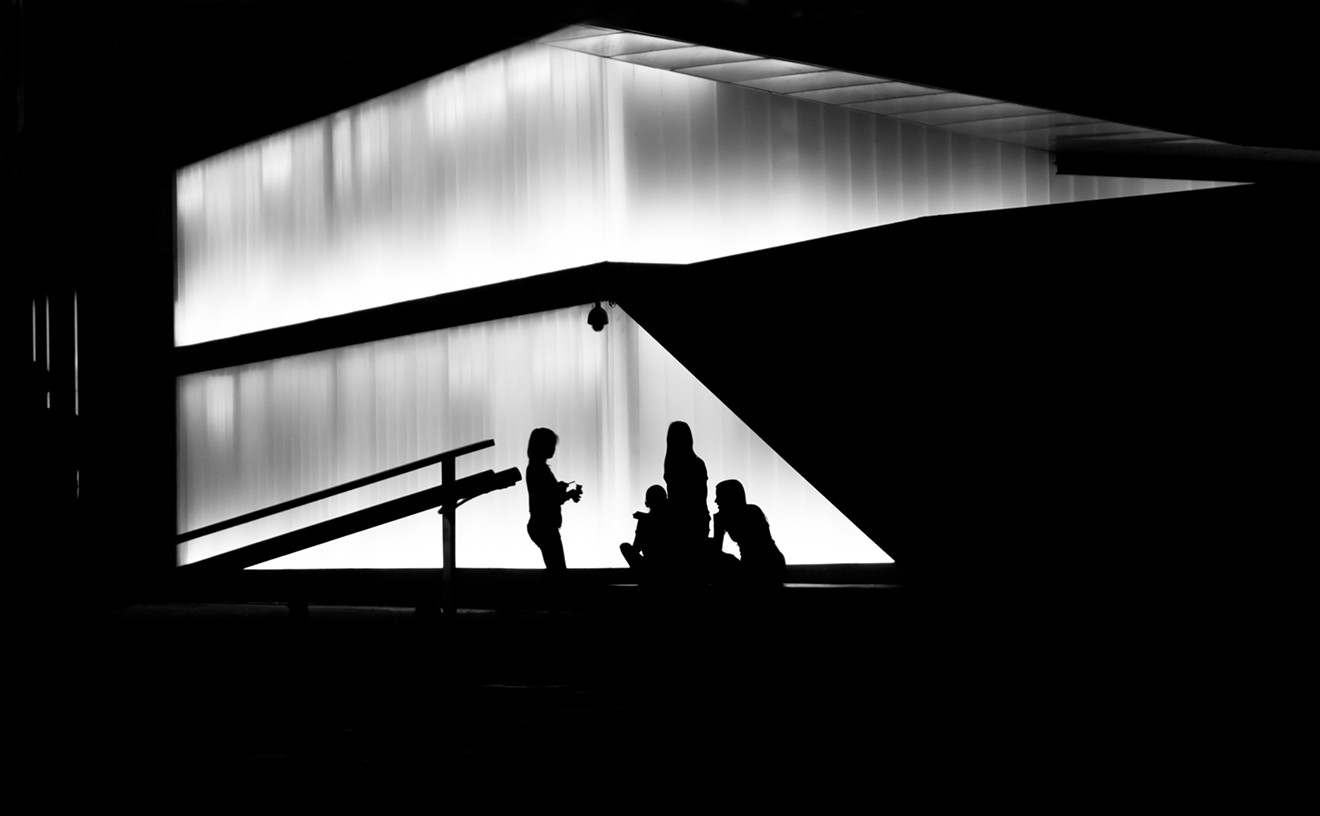But now she was back in prison. Dudley's heart sank as she looked out from behind the lectern and saw that the woman was right back where she'd started. "Lord, if you're real," Dudley prayed, "that lady can be delivered." At that moment, Dudley envisioned an inner-city church that would be open 24 hours a day, seven days a week to help people like this woman make a lasting change.
Today that church is a reality. Called Dallas International Street Church, it is located in South Dallas on Clarence Street in an old brick structure that used to be a 12-unit apartment complex near boarded-up buildings and crack houses. Underneath a nearby bridge, a small colony of homeless people sleep in cardboard boxes. Dallas International Street Church redefines church as many of us know it. The congregation is almost entirely made up of homeless people, and the church staff are almost all former drug addicts.
Dudley believes the mission of the street church is to reach out to the needy in whatever way they can. Sometimes that means helping people obtain documents and identification that they've lost, such as birth certificates, picture IDs or Social Security cards. Or it might involve giving someone a place to sleep, getting them counseling or helping them obtain a GED. "If we can make one person's life a little bit better, we're going to do that without question," Dudley says. "If they want to make a change, then I want to help them make a change."
The church plays a small but significant role in combating homelessness in Dallas. According to the most recent statistics, the homeless population in Dallas County is somewhere between 5,000 and 6,000. That number includes individuals living in temporary housing such as shelters and motels as well as those living on the streets and in homeless encampments. Some homeless advocates, however, doubt the accuracy of these counts.
In 2006, the National Coalition for the Homeless and the National Law Center on Homelessness and Poverty conducted a survey of 224 cities to evaluate how they treated their homeless populations. Dallas was ranked one of the worst because of several laws the city has targeted at the homeless population.
Panhandling, for instance, is now prohibited across the city from sunset to sunrise, and under a new ordinance, good Samaritans who feed the homeless outside of city-approved locations can be fined anywhere from $200 to $2,000. The city also has a ban on sleeping in public, and it regularly bulldozes homeless encampments.
But the city is attempting to change its image. The Dallas Homeless Assistance Center is scheduled to open next March. At this $21 million facility, which features 100 beds for short-term use as well as an outdoor pavilion where 300 people can sleep, the homeless can take a shower, get a hot meal and get access to job training and treatment for drug and alcohol addiction and mental illness.
Jeremy Gregg, director of development at Central Dallas Ministries, believes the most important thing a city can do to deal with homelessness is to provide affordable housing, particularly single-room-occupancy units, or SROs. He says the Street Church and other small nonprofits like it are best at addressing the immediate needs of the homeless, such as food, clothing and shelter. But Gregg says ending homelessness in Dallas will require more than any one organization can accomplish on its own.
"I'm just grateful for the little, minute thing that I get to do everyday," Dudley says.
Every week Dallas International Street Church serves more than 1,000 meals and hands out enough clothing to fill 20 to 30 garbage bags. Dudley networks with several other ministries and nonprofits in order to treat the "whole person." If someone comes to the church strung out on drugs, the church will take them to Homeward Bound Inc., which has 14- to 21-day residential drug detox as well as an outpatient program. The church staff is also attuned to spiritual needs. It operates a Christian 12-step program as well as daily Bible studies and nightly church services to get people on the path to spiritual healing.
Soon after someone enters the program, Dudley likes to get them involved in serving. She sees this as one of the most important components of recovery: learning to give back. Sometimes men and women in the program find themselves serving food or handing out clothing to people they smoked crack with only the week before.
Dudley recognizes that change is a process. "It doesn't come overnight," she says. "Hearts have been hardened because of the things that they have been through. It's hard to learn to trust again."
Ronnie Perkins, the praise and worship leader at Street Church, says the church has changed his life. He was one of the first men to be helped by Dudley after she started the church nearly 10 years ago. In 1987, Perkins' partner died of AIDS, and Perkins learned that he'd contracted HIV. Shortly thereafter he found himself abandoned by friends and family. Then he discovered a new friend, crack cocaine. By the time he met Dudley, he weighed only 125 pounds (he now weighs 175) and often slept on the loading dock of a seldom-used building. Perkins says, "I was tore up from the floor up. It was hard for me to go back to the traditional church, because I was so messed up and I didn't know if they were going to accept me. But the church here will accept you just the way you are. We'll build you up from where you are."
Dudley sees herself as an unlikely candidate for this kind of work. She grew up in a little country town in Oklahoma. She had an ordinary upbringing and never got into drugs or alcohol. But Dudley has a tenacity that drives her to see hurting people's lives changed. The church staff tells stories of how she's walked into crack houses to pull her people out when they've had a relapse. "These are not drunks and bums and crackheads," Dudley says. "They're people with the same hopes and dreams that you and I have."










